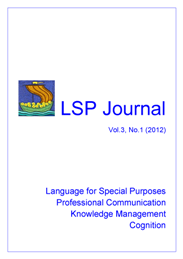Lexical variations in business e-mails written by non-native speakers of English
Abstract
English is the lingua franca used in business communication. Therefore the number of non-native speakers of English already outnumbers native speakers provided that worldwide enterprises use English for international communication. The Internet has also increased the use of English as an international language, in this way; it is used by speakers with different linguistic backgrounds. This variety of authors produces differences or variations in language use. In this paper we contrast business e-mails written by Spanish agents who work in an exporting company in India and China. Our main aim is to analyze the possible variations due to the mother tongue and the socio-cultural context and to classify lexical variation in business English used as a global working language by non-native speakers. We intended to determine the causes of variation and their influence on discourse. We analyzed and contrasted sixty e-mails written by two groups of non-native English speakers. Group A was composed of native speakers from Pakistan and Group B was composed of native speakers from China. The corpus analysis was carried out manually. We classified the occurrences in categories depending on the cause of the variation. After the analysis, we observed that the lexical variations found were caused by sociolinguistic and cultural influences.



